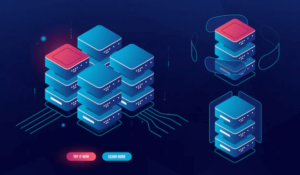NoSQL is a database management process
NoSQL database advantages that contain different data models such as document, graph format, and key value. Moreover, the NoSQL database is flexible, non-relational, and easy to use. Additional features include data collection, stability, and replication support. The term NoSQL stands for “Not Only SQL”. However, the benefits of NoSQL provide additional support for SQL.
The relational database is generally in use for data storage and modern web techniques. On the other hand, NoSQL databases are ideal for high scalability and unstructured data. Like other technologies, there are several NoSQL databases’ advantages and disadvantages. Thus, the technique offers benefits and also suffers from some limitations. Let’s discuss some pros and cons of NoSQL databases in detail.

Advantages of NoSQL:
NoSQL is a new way of data storage and an alternative to SQL databases. Many of us want to know what are NoSQL databases and their advantages. NoSQL databases offer the following benefits.
1. Ideal for Data Storage:
One of the exclusive NoSQL database advantages is its ability to store a large amount of data. Several NoSQL databases can handle different data sets. So, the process is generally beneficial for big data applications such as the Internet of Things (IoT).
For instance, BigTable is a storage system ideal for storing structured data. The system allows deletion and addition with no disturbance. Therefore, storing data on BigTable makes it possible to access data within documents without security layers. In addition, you don’t have any limit to storing data in NoSQL databases.
2. Ease of Use:
The best thing to consider about NoSQL databases is their flexibility. These databases are easy to use, and you can change them to meet the needs of your business. Furthermore, NoSQL databases’ advantages are not limited as you can also arrange them horizontally. Thus, it is the best benefit of this technique over SQL databases. The reason is the lack of structure in data that permits NoSQL databases to scale horizontally. Therefore, it requires less structuring than SQL. You can also keep objects in separate servers without interlinking.
3. High Performance:
NoSQL databases are built for exceptional performance. Furthermore, performance is a measure of production or output. NoSQL databases allow users to update the strategies with requirements. The system never causes interruption to the applications.

4. Flexible Data Model and Types:
The flexibility in the data model and types are the best NoSQL database advantages. The process is capable of storing data in both structured and unstructured forms. NoSQL databases also permit users to store and recover data without the need for users’ specified schemes. Therefore, the applications can adopt new types of information by modifying indexes.
5. Useful for Auto-Sharing:
The relational database is in vertical order, and you have different databases spread over servers because of disk space. Auto sharing is an ideal way to lower problems with NoSQL databases. With this feature, the data will be spread across different servers without the need for any application.
6. Duplication:
NoSQL databases support automatic databases in planned events. Many highly developed NoSQL are self-healing that offer automated recovery. Therefore, the process is highly capable to distribute the database over different geographic regions by allowing data fixing.
7. Elasticity and Economy:
One of the best advantages of the NoSQL database is that they are beneficial with low-cost hardware. Therefore, you can easily handle data with ease by using NoSQL databases.
Relational databases need the installation of costly storage systems and servers. However, you can install NoSQL databases on low-cost hardware. The transaction and data volume will increase. So, users will be able to store and process more data with less cost.

Disadvantages:
There are some problems with NoSQL databases that you should consider. Below are some disadvantages of NoSQL databases.
1. Less Consistency:
NoSQL databases put performance and scalability first. When it comes to data consistency in NoSQL, the system doesn’t consider it. Therefore, the system is less secure than a relational database. For example, NoSQL databases enter the same data without any error. On the other hand, relational databases ensure that no duplicate rows get entry into the databases.
2. Less Standardization:
When we talk about NoSQL databases’ disadvantages, there is usually a lack of standardization. There is no standard to define the roles and rules of NoSQL databases. Moreover, the design of this system changes between different NoSQL items.
3. Backup:
Backups are one of the NoSQL database’s disadvantages. Some databases offer backup tools. However, such tools are not ideal to ensure a complete data backup solution.

4. Queries are Less Adjustable:
When it comes to storing data structures, they lack more complex query functions than SQL. So, it is one of the NoSQL database’s disadvantages. You cannot use different types of standard queries with this database management system. For instance, NoSQL databases cannot ensure key uniqueness like traditional relational systems.
Less Support:
One of the NoSQL databases disadvantages is it does not have a large community as SQL. Moreover, the system lacks features that are generally present in SQL databases.
Top NoSQL Databases:
There are many popular NoSQL database systems. Each system uses a unique type of data model that differentiates them. Popular NoSQL databases systems are the following:
1. Graph Databases:
Graph data is from the top 3 NoSQL databases that store organized data as nodes. Nodes are similar to rows in a relational database. The graph system generally stores the relation between nodes. In addition, the graph databases can make progress with time. The graph data model is applied in systems with map relationships such as customer relationship management and social media performance.
2. Document Databases:
Document databases are also known as document stores. The documented database is from the list of top 3 NoSQL databases that store semi-structured data. Moreover, the system enables developers to update and create programs without the master scheme. The use of document databases has increased with JavaScript. In addition, the system is in use for data handling of mobile applications and content management.
3. Key-Value Stores:
The key-value stores apply a simple data model that pairs unique keys with an associated value. Furthermore, the key-value database is one of the top 3 NoSQL databases that are simple and ideal to develop applications. The system is beneficial for session management. Some key-value databases are DynamoDB, Aerospike, Redis, and Riak.

Conclusion:
Selecting a database management system for the business can be a difficult task. However, NoSQL databases are versatile and have unlimited uses. There are multiple NoSQL databases advantages as it can handle small and large data. Moreover, the system can also work if you need flexibility in information storage. NoSQL database has made our lives easier for handling large amounts of data. If you are looking for a system that is best to store a range of data, you should consider NoSQL databases.
Learn More









